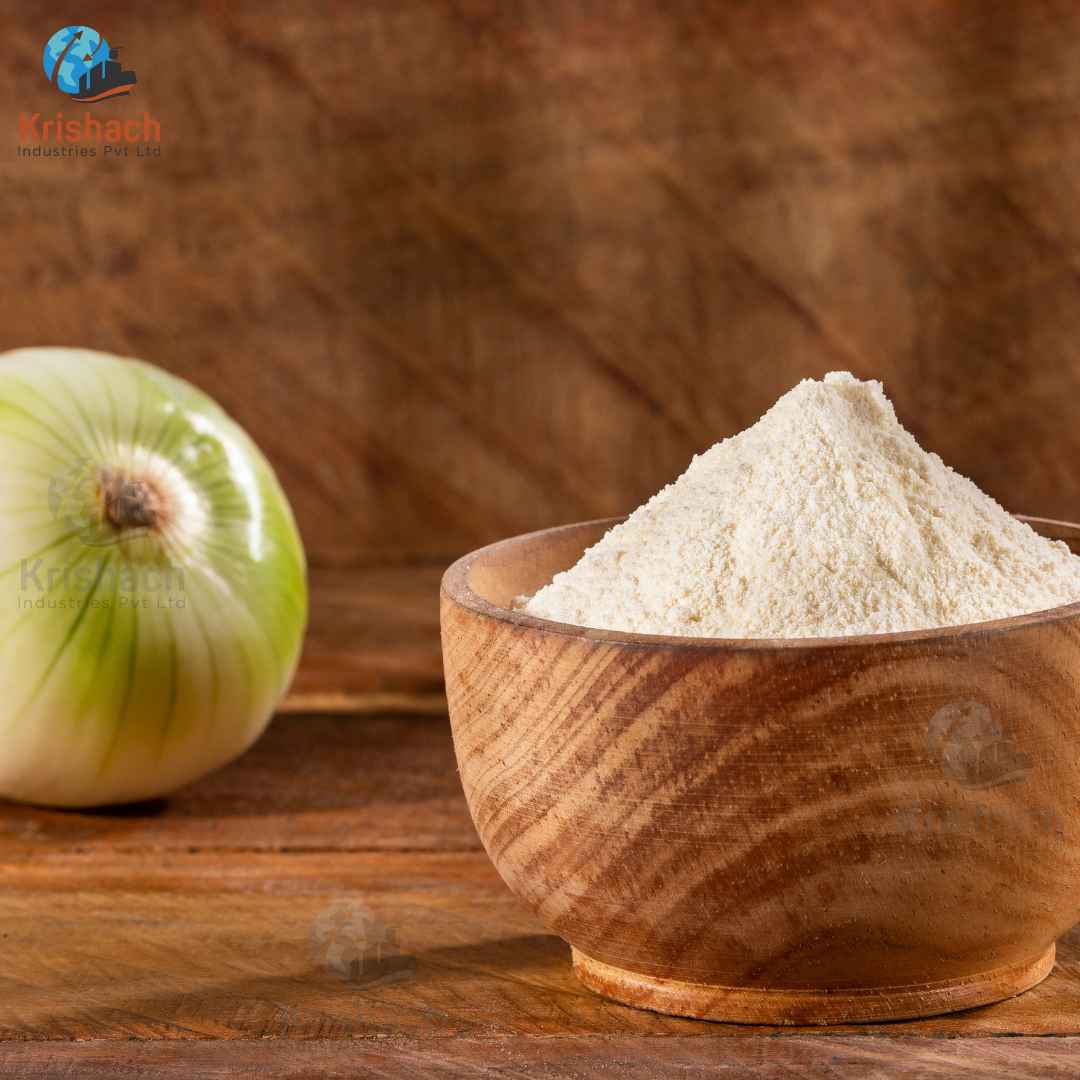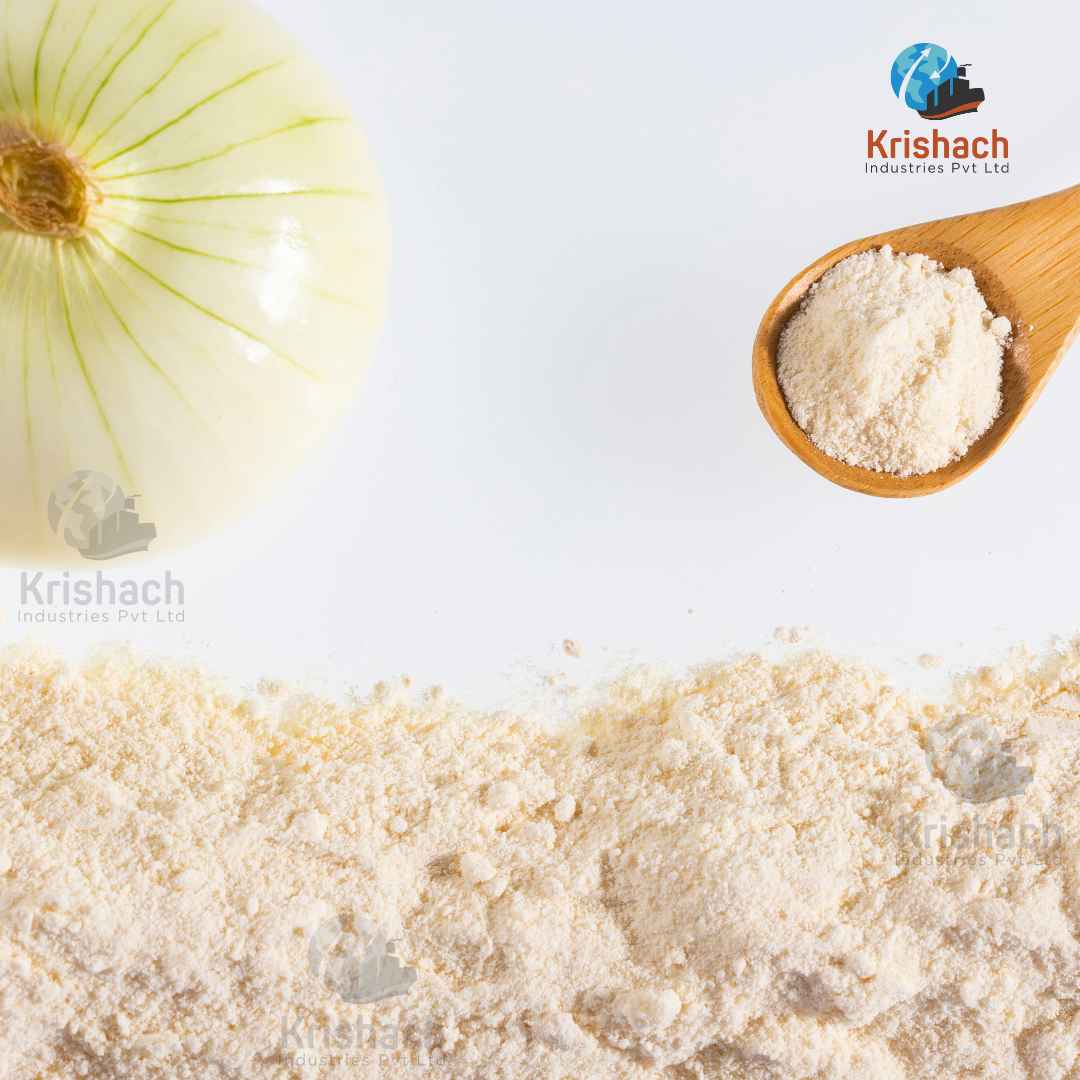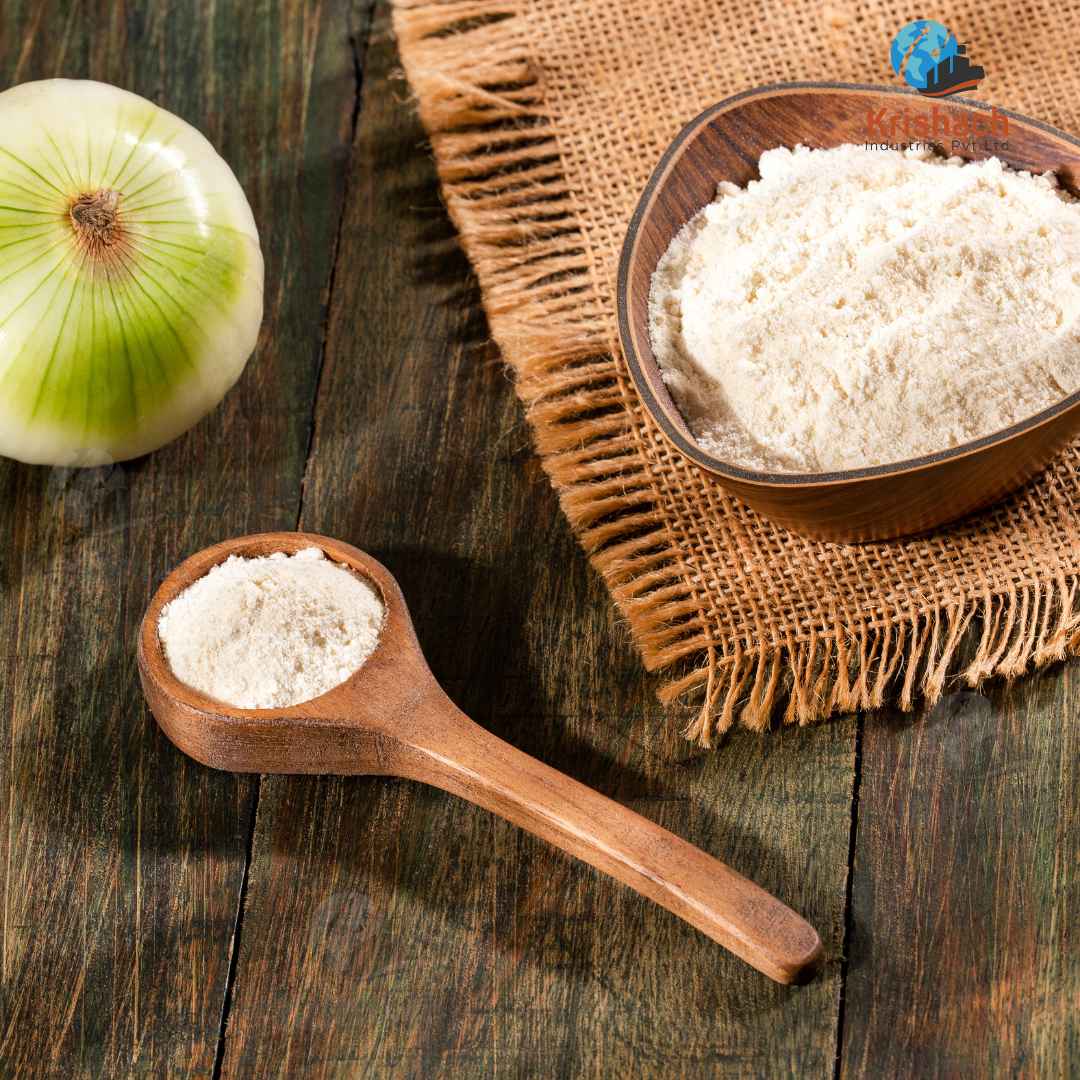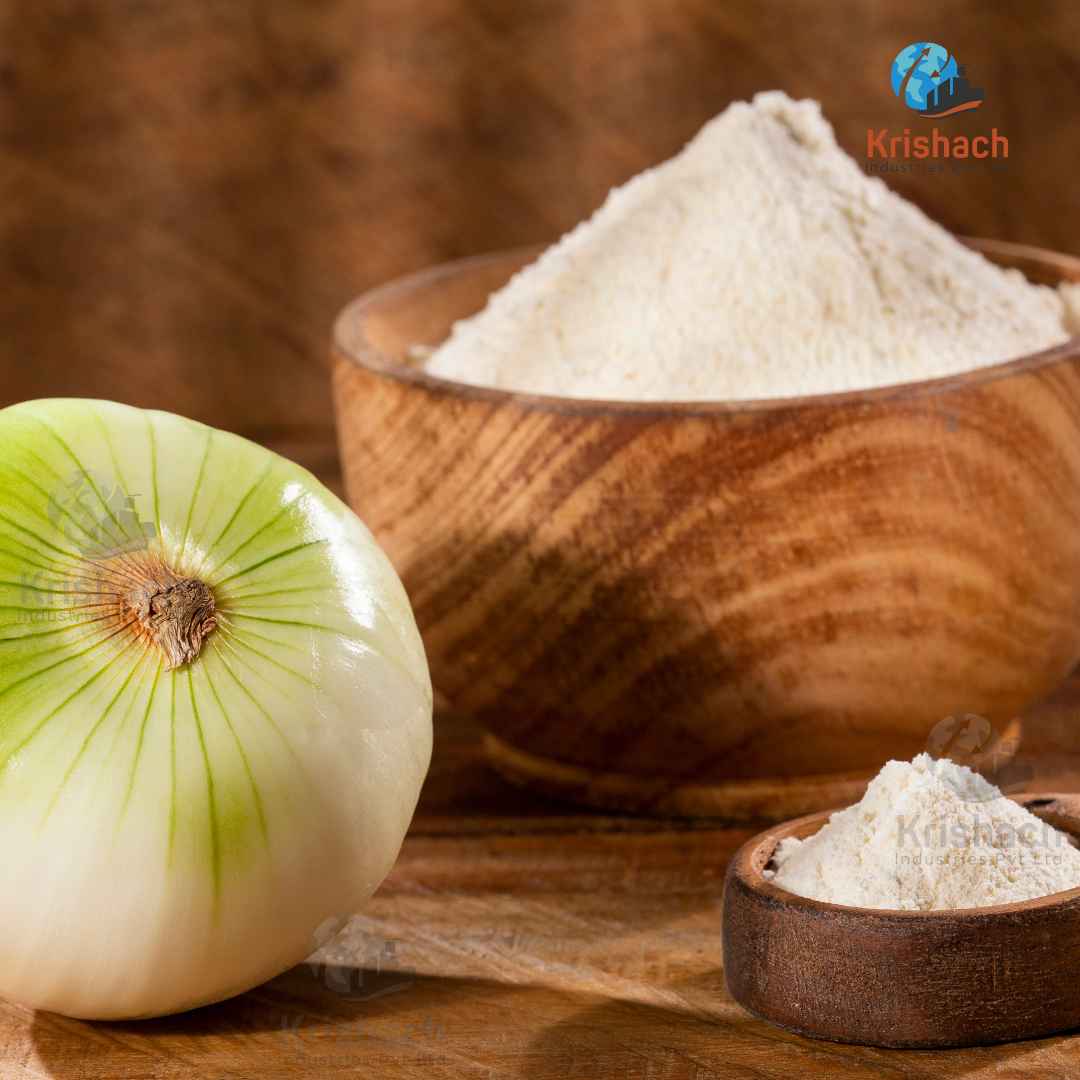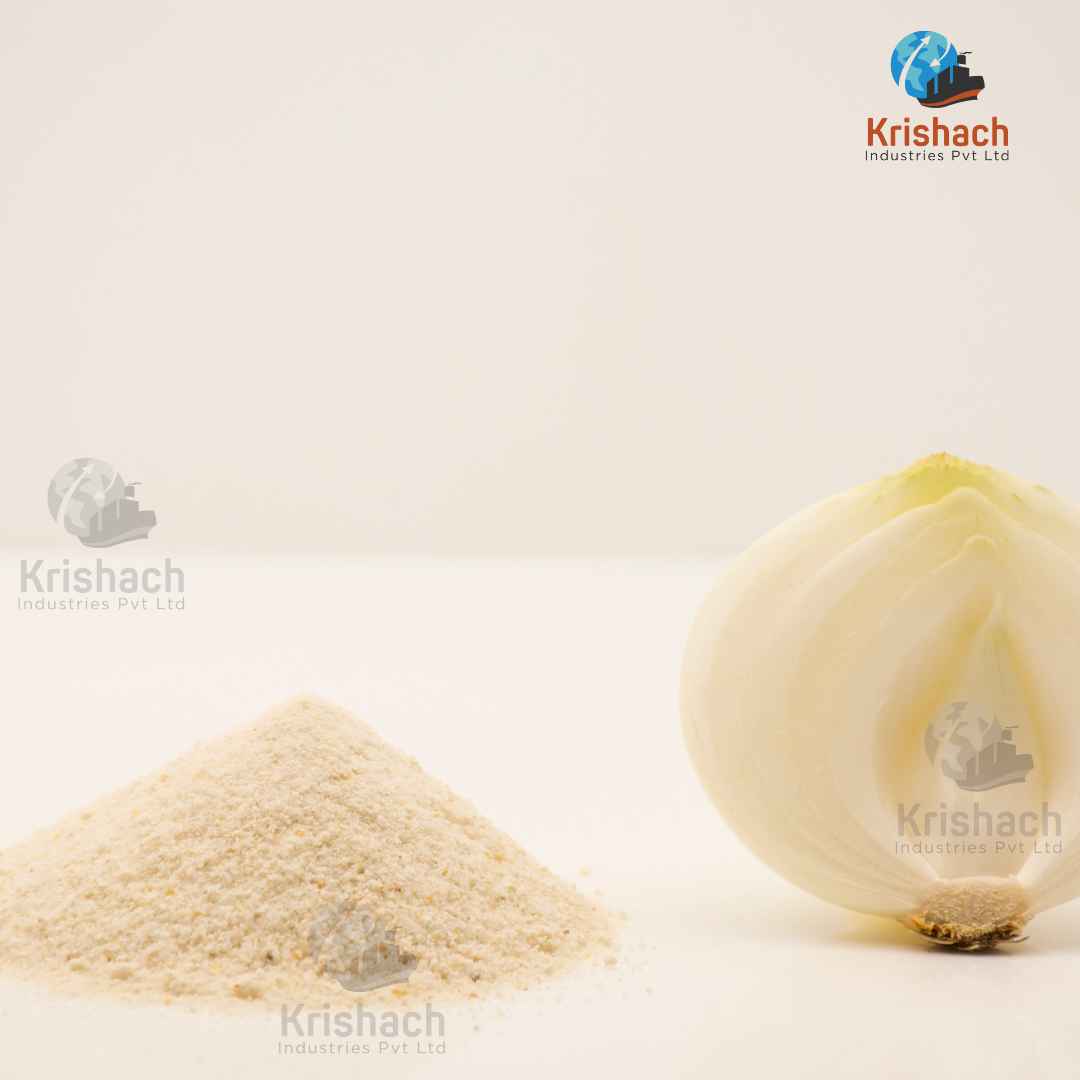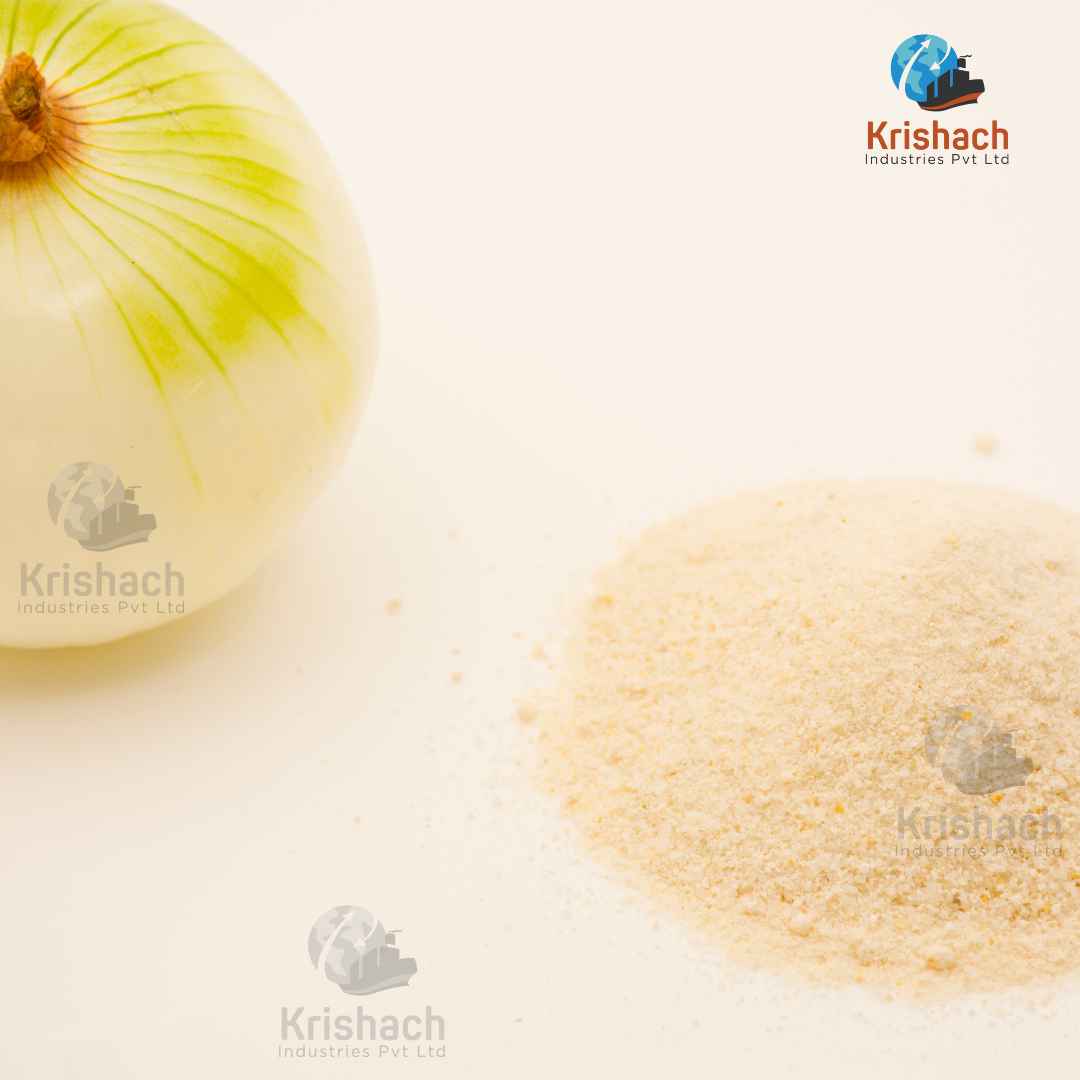Dehydrated White Onion is a versatile and convenient ingredient made from carefully selected fresh white onions. These onions undergo a meticulous dehydration process that removes their moisture content while preserving their natural flavor, aroma, and nutritional benefits. The result is a product that retains the distinct pungency and sweetness of fresh onions but in a dry, stable form that is easy to store and use.
Key Characteristics:
Flavor Profile: Maintains the distinct pungency and mild sweetness of fresh white onions, providing a consistent onion flavor in a concentrated form.
Texture and Forms: Available in multiple forms including flakes, granules, powder, and minced pieces, offering flexibility in different recipes and uses.
Shelf Life: Long shelf life due to reduced moisture content, making it ideal for bulk storage and reducing food waste.
Convenience: Eliminates the need for peeling, chopping, or crying over fresh onions, saving time and effort in food preparation.
Nutritional Value: Retains essential nutrients such as dietary fiber, Vitamin C, Vitamin B6, and potassium, while being low in calories and fat-free.
Versatile Use: Suitable for use in a wide range of culinary applications, including soups, stews, salad dressings, spice blends, and more.
Storage: Requires cool, dry storage conditions and is easy to transport and store due to its lightweight, dehydrated form.
Available In: Flakes, Chopped, Minced, granules, Powder.
Flakes: Typically 3-5 mm in size, suitable for rehydration and direct use in cooking.
Chopped: 1-3 mm pieces, often used in spice blends, soups, and ready-to-eat meals.
Minced: Fine, granular texture, ideal for dry mixes and seasonings.
Powder: Fine, uniform powder for sauces, dressings, and seasoning applications.
Moisture Content: <6%.
Shelf Life: 12-24 months in cool, dry conditions.
Specification:
Uses:
Dehydrated white onion is a versatile ingredient used in various culinary applications to add depth and flavor without the hassle of chopping fresh onions. It’s commonly used in:
Cooking: Added to soups, stews, sauces, and casseroles for a rich onion flavor.
Seasonings and Spice Blends: Used in seasoning mixes, spice blends, and rubs for meats, providing a concentrated onion taste.
Ready-to-Eat and Processed Foods: Incorporated in snacks, instant soups, and meal kits for convenience and shelf stability.
Baking: Used in breads, crackers, and savory pastries to enhance flavor.
Salads and Dressings: Rehydrated and used in salads, dressings, and dips for a mild, sweet onion taste.
Nutritional Value
Dehydrated white onion retains many of the nutritional benefits of fresh onions but in a concentrated form:
Low in Calories: Approximately 8 calories per tablespoon, making it a low-calorie addition to dishes.
Dietary Fiber: A good source of dietary fiber, aiding in digestion and promoting satiety.
Vitamins and Minerals: Contains essential nutrients such as Vitamin C, Vitamin B6, and folate, which support immune function, metabolism, and overall health.
Antioxidants: Provides antioxidants like quercetin, which have anti-inflammatory properties and may support heart health.
Low Sodium and Fat-Free: Naturally low in sodium and free from fats, suitable for heart-healthy and low-fat diets.
Dehydrated white onion is a convenient, nutritious option that enhances the flavor and nutritional profile of a wide range of dishes.
Our Services
Reliable Sourcing:
Sourcing of dehydrated white onions begins with selecting high-quality onions from reputable farms in regions known for optimal growing conditions, such as Gujarat and Maharashtra in India. Farmers practicing sustainable and GAP-certified farming methods are preferred to ensure the onions are free from synthetic pesticides and chemicals. Ensuring a stable supply chain with consistent quality is crucial, and this is achieved through strong relationships with local growers and cooperatives.
Premium Quality Assurance:
The quality assurance process involves stringent testing and inspection at every stage, from raw material selection to final packaging. Upon arrival at the processing facility, onions are tested for quality parameters such as size, color, and moisture content. The dehydration process is monitored to maintain the desired texture and flavor profile. The final product undergoes thorough testing for microbial safety, ensuring compliance with international food safety standards like ISO, HACCP, and FSSC. Regular audits and quality checks help maintain product integrity and safety.
Process:
The processing of dehydrated white onions involves several key steps. First, fresh onions are cleaned and peeled to remove any impurities. They are then sliced or chopped to the desired size. The onion pieces are spread on trays and dehydrated using hot air ovens or tunnel dryers at controlled temperatures to preserve their flavor and nutrients while reducing moisture content to below 6%. After dehydration, the onions are screened for size uniformity and passed through metal detectors to ensure they are free from foreign particles. Finally, the product is packed in moisture-proof, food-grade packaging to preserve its quality and extend shelf life until it reaches the market.
Packaging, Shipping & Delivery
Laminated Polyethylene and Aluminum Pouches:
For retail and food service segments, dehydrated white onions are often packed in laminated polyethylene and aluminum pouches, ranging from 100 grams to 1 kilogram. These pouches are moisture-proof, light-resistant, and airtight, helping to maintain the product’s quality and shelf life.
Polypropylene (PP) or High-Density Polyethylene (HDPE) Bags:
For bulk quantities, typically ranging from 10 kg to 25 kg, polypropylene or HDPE bags are commonly used. These bags are durable, lightweight, and resistant to tearing, providing protection against moisture and contamination during transportation. They are often lined with an inner plastic liner to offer an additional barrier against moisture.
Fiber Drums with Poly-Liners:
For larger quantities intended for industrial use or further processing, fiber drums with poly-liners are employed. These drums, available in sizes up to 50 kg, are sturdy, stackable, and ensure the product is protected from moisture, light, and external contamination.
Corrugated Carton Boxes:
After primary packaging, the products are often packed in sturdy corrugated carton boxes for added protection during transit. These boxes are sealed with adhesive tape and labeled with essential information such as product name, weight, batch number, and country of origin.
Palletization and Stretch Wrapping:
For large-scale exports, the carton boxes or bags are stacked on wooden or plastic pallets and wrapped with stretch film to provide stability and minimize damage during transport. Palletization facilitates easy handling, storage, and shipping.
Labeling and Documentation:
Each package is labeled according to international regulations, including details such as product name, net weight, production and expiry dates, and handling instructions. Export documentation such as phytosanitary certificates, certificate of origin, and other regulatory documents are prepared to comply with the importing country’s requirements.
Efficient Shipping:
Partner with reliable freight forwarders and logistics companies to ensure timely and safe delivery of goods. Offer multiple shipping options (air, sea, or land) based on customer preferences.




